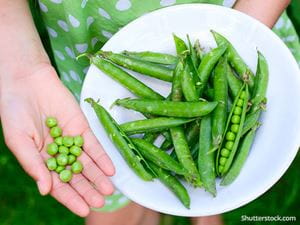
Angelina Jolie discussed her bad experience with her vegan diet and it caused tongues to wag. “I joke that a big juicy steak is my beauty secret,” said Jolie. “But seriously, I love red meat. I was a vegan for a long time, and it nearly killed me. I found I was not getting enough nutrition.” Not everyone is suited to be on a vegan diet. Like Jolie, who was mocked for getting off her diet, we may feel guilty if our vegan diets are not working because of our support for animal rights or wanting to be healthier. Vegan diets do work for many, as there are 16 million people who are now vegan and vegetarian. "The Vegetarianism in America" study published by Vegetarian Times showed that 3.2 percent of U.S. adults, or 7.3 million people, follow a vegetarian-based diet. "Approximately 0.5 percent, or one million, of those, are vegans, who consume no animal products at all. There are people who do well on a plant-based diet." What is a vegan anyway? Vegans refrain from eating any products from animals and this includes milk, fish, eggs, honey or gelatin. But there is a downside to this diet if you do not plan for it. Here are 5 little-known facts about ineffective vegan diets.
It's not going to make you healthier.
A vegan diet is low in calcium, iron, B vitamins and other minerals that the body needs. People need to get supplements to counteract this deficiency in the diet. Humans are omnivores. We function best eating both animals and plants. Animal protein contains all the essential amino acids in the right ratios. It is important for muscle mass and bone health. Vegans don’t get any animal protein, which can have negative effects on body composition. Harvard Health Publications explained that people who follow a vegetarian diet and especially a vegan diet may be at risk of getting insufficient vitamin D and vitamin K as well. "Although green leafy vegetables contain some vitamin K, vegans may also need to rely on fortified foods, including some types of soy milk, rice milk, organic orange juice and breakfast cereals."Many vegans have a vitamin B12 deficiency.
Vitamin B12 is a water-soluble vitamin that has a key role in the normal functioning of the brain and nervous system. The vitamin is crucial for the blood and for the bones. Some vegans will experience the lack of this since they don't consume dairy products. B12 is significant for people to function and the vitamin is scarce in the vegetables that vegans eat. What is alarming is there are higher deficiencies reported among vegans as compared to vegetarians. "Among individuals who had adhered to a vegetarian diet since birth compared with those who had adopted such a diet later in life. The main finding of this review is that vegetarians develop B12 depletion," the International Life Sciences Institute found.Eating plant protein is not enough.
According to author and Dr. Ray Peat, Ph.D., “One thing that happens in the vegetable diet, heavily based on [the] cabbage family, or beans, lentils and nuts, these proteins, in quality, rank about 15 times lower than the highest quality protein." What does this mean for the vegan? Eating foods rich in protein like beans, tofu, nuts, quinoa, green peas and garbanzo beans is helpful. But it might not be enough as liver detoxification is slowed down since it doesn't have enough protein and it could lead to toxicity. Protein helps the liver's ability to filter toxins from the blood better and protein is a big part of this.It messes up digestion.
If a vegan is already lacking in protein, the body could start lacking stomach acids. If the body is going to digest properly, it needs the acid production to breakdown foods. "Without regular and healthy stimulation of digestive juices, your digestion weakens and fewer nutrients are able to be absorbed in your body," butternutrition.com shared. Low stomach acid, indigestion, IBS and general bloating also accompanied being a vegan. However, people combat this by taking digestive enzymes.It puts you at risk for osteoporosis.
Osteoporosis is the progressive loss of bone mineral density (BMD) and compromised bone strength is associated with increasing risk of fracture over time. More than 44 million people in the world suffer from low bone mass. Some studies suggest that vegans may be at higher risk of bone fracture. "In the end, it may be the type of diet a vegan follows that matters more than being vegan itself," Today's Dietician reported. An animal-free diet can be very healthful, but it must be planned so the body doesn't suffer. If you do decide to adopt the vegan diet, stick to high-calcium foods like almonds, figs, kale, collard greens, bok choy and broccoli, black-eyed peas, soy and almond milk. Putting your bones at risk is not worth the vegan diet if you don't have a plan to prevent osteoporosis.Diets without animal products can be beneficial. For example, vegan diets offer more antioxidants and fiber by consuming plants. Veganism may lower the risks of Type 2 diabetes, heart disease, stroke, reduce inflammation and colorectal cancer. If you choose to adopt the vegan diet, do your own investigation and plan to compensate for the vitamins that will be lacking in your diet. See if veganism is for you, Jolie found out it was hurting more than helping. If needed, talk with your nutritionist or physician for more information and for more guidance.

